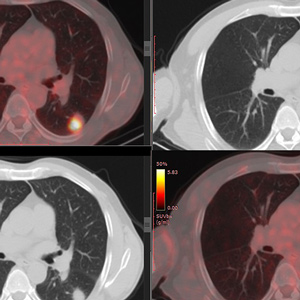-
Roadblocks to Care
Some cancer patients struggle to find transportation to their appointments. The coronavirus pandemic has further limited options for patients looking for rides.
by Anna Goshua
-
Getting Serious About Depression
Cancer survivors have higher rates of depression than the general population, but many don't know help is available.
by Cameron Walker
-
Forward Look
Scanning DisparitiesWhether lung cancer patients receive PET scans depends on race, according to a study.
by Ashley P. Taylor
-
Forward Look
Support Services Help Improve Patient OutcomesStudy suggests far-reaching benefits of mental health treatment.
by Sharon Tregaskis
-
Forward Look
Watch Your MouthDental screening before treatment could stave off dental emergencies.
by Nancy Averett
-
Multiple Myeloma: Choosing Your Path
New therapies provide hope and options for people as they monitor and manage this incurable blood cancer.
by Tara Haelle
-
Get Involved
Smiling FacesRich Nardiello seeks to bring a smile to children with cancer.
by Bradley Jones
-
Forward Look
Doing More With LessHypofractionation may allow patients to finish radiation treatment sooner.
by Stephen Ornes
-
Survivor Profile
A Voice at RiskRob Paulsen has voiced hundreds of animated characters, but as he prepared to return to a beloved role, cancer threatened his livelihood.
by Bradley Jones
-
Q&A
Ethics in PracticeRebecca Dresser explores the history and burdens of clinical trials through the lens of a cancer survivor and medical ethicist.
by Marci A. Landsmann
Cancer Talk
The Power of Comedy
In a new play, the pain of cancer can be a chance to laugh.
by Ashley P. Taylor
Melanoma Risk in Childhood Cancer SurvivorsPeople treated for childhood cancer found to have twice the risk of developing melanoma as an adult.
by Cameron Walker
Online Second OpinionsMore than half of patients who participated in a program offering online second opinions were recommended a change to their treatment plan.
by Eric Fitzsimmons
Musical Toxicity an Effect of Cancer TreatmentStudy finding cancer treatment affects ability to play or sing music highlights need for physical therapy, experts say.
by Kyle Bagenstose















